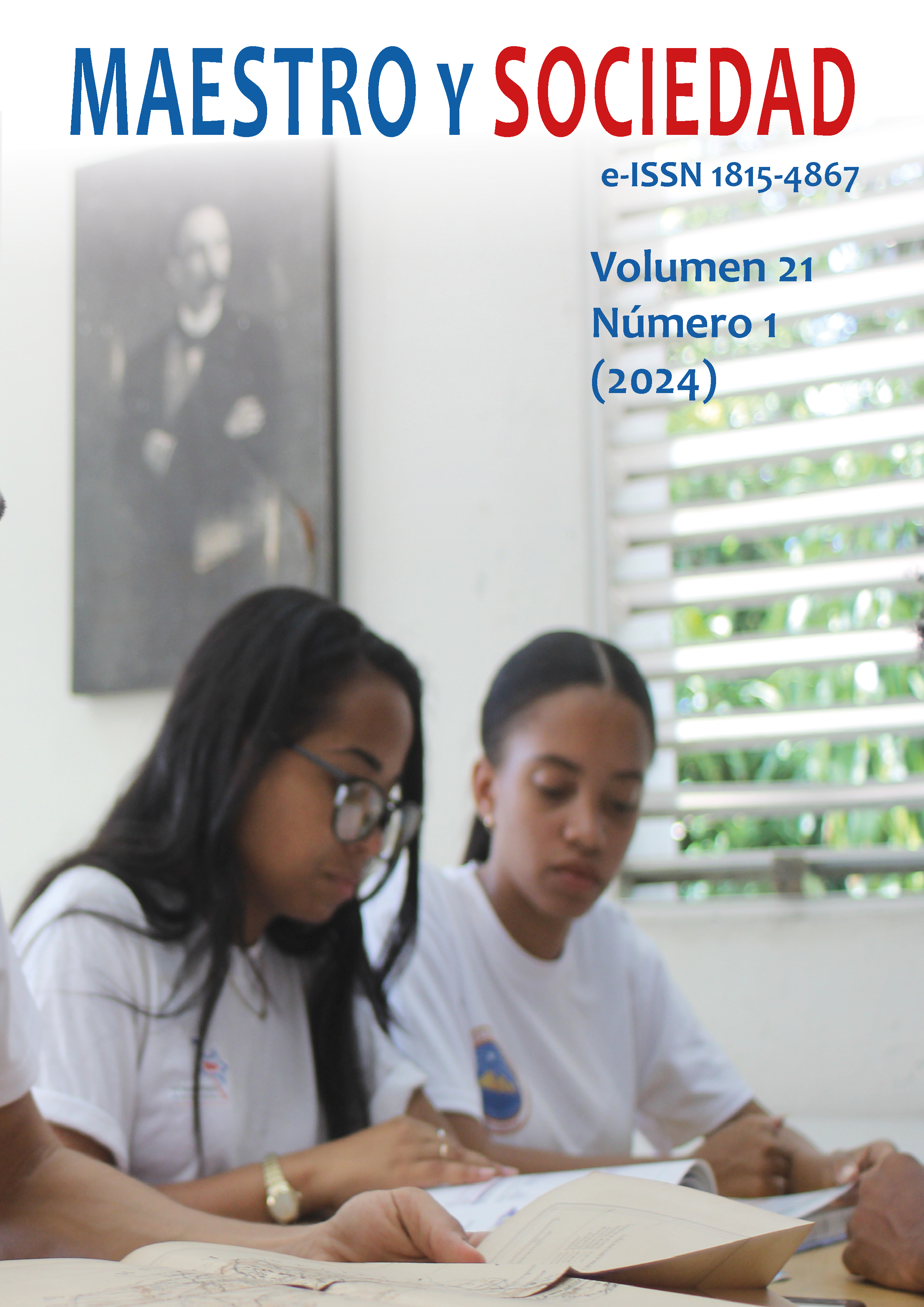Promoting Ethical Conduct in Research: study of Scientific Integrity at the Faculty of Law of the National University of Ucayali
Keywords:
responsible authorship; good scientific practice; responsible conduct in research; scientific integrity; plagiarismAbstract
Introduction: The study at the National University of Ucayali, in the Faculty of Law, highlights the relevance of scientific integrity in responsible investigative conduct in Ucayali, Peru. The main objective was to know the positive impact of principles on esearch practices. Materials and methods: A quantitative methodology was adopted, with a preexperimental design, applied to 36 teachers through surveys. Results: The results, with an error of 0.044, confirmed that scientific integrity significantly improves responsible research. Discussion: The law highlights the importance of transforming teaching beyond the transmission of knowledge, emphasizing that teachers must also be actively involved in research. However, it is observed that, despite the intention of the law, there are significant limitations in the implementation of effective policies that promote research and scientific integrity among teachers. Conclusions: This finding emphasizes the need to promote scientific integrity for academic development and credibility, underlining its importance in ethical training and research quality.
References
Abad-García, F. (2019). El plagio y las revistas depredadoras como amenaza a la integridad científica. Anales De Pediatría, 90(1), 57.e1-57.e8. https://doi.org/10.1016/j.anpedi.2018.11.003
Arribalzaga, Eduardo B. (2008). ¿Conflictos de interés o intereses en conflicto?. Revista chilena de cirugía, 60(5), 473-480. https://dx.doi.org/10.4067/S0718-40262008000500019
Asociación Española de bioética y ética médica. (2016). Declaración nacional sobre integridad científica (COSCE, CRUE, CSIC). Cuadernos de bioética, 103-105.
Castro-Rodríguez, Y., Yoplac-López, B., Carpio-Tello, A., Sihuay-Torres, K., & Cósar-Quiroz, J. (2018). Percepción del plagio académico en estudiantes de Odontología. Educación Médica, 19(3), 141-145. https://doi.org/10.1016/j.edumed.2017.03.003
Concari, S. B. (2001). Las teorías y modelos en la explicación científica: implicancias para la enseñanza de las ciencias. Ciência &Amp; Educação (Bauru), 7(1), 85-94. https://doi.org/10.1590/s1516-73132001000100006
Consejo Nacional de Ciencia Tecnología e Innovación Tecnológica. (2019). Código Nacional de la integridad cientifica. Concytec.
Espinoza Freire, Eudaldo Enrique. (2020). El plagio un flagelo en el ámbito académico ecuatoriano. Revista Universidad y Sociedad, 12(3), 407-415. Epub 02 de junio de 2020. http://scielo.sld.cu/scielo.php?script=sci_arttext&pid=S2218-36202020000300407&lng=es&tlng=es
Ganga, F., Castillo , J., & Pedraja Rejas, L. (2016). Factores implicados en la publicación científica: una revisión crítica. Revista chilena de ingenieria, 24, 615-627. doi:10.4067/S0718-33052016000400007
Guilarte, G. (2016). El desarrollo de la competencia científica: 11 ideas clave. Editorial Graó.
Hernández Islas, M., (2016). El plagio académico en la investigación científica. Consideraciones desde la óptica del investigador de alto nivel. Perfiles Educativos, XXXVIII(153), 120-135.
Hirsch Adler, A., (2016). Comportamiento responsable en la investigación y conductas no éticas en universidades de México y España. Revista de la Educación Superior, XLV(3)(179), 79-93.
Ilárraza-Lomelí, H., & García-Saldivia, M. (2015). En un documento científico: ¿quién debe ser el primer autor?. Archivos de Cardiología de México, 85(2), 93-95. https://doi.org/10.1016/j.acmx.2015.05.001
Lam Díaz, Rosa María. (2016). La redacción de un artículo científico. Revista Cubana de Hematología, Inmunología y Hemoterapia, 32(1), 57-69. http://scielo.sld.cu/scielo.php?script=sci_arttext&pid=S0864-02892016000100006&lng=es&tlng=es
López Gómez, E. (2016). En torno al concepto de competencia: un análisis de fuentes. Profesorado, Revista De Currículum Y Formación Del Profesorado, 20(1), 311–322. https://revistaseug.ugr.es/index.php/profesorado/article/view/18589
Mederos-Piñeiro, M., (2016). La formación de competencias para la vida. Ra Ximhai, 12(5), 129-144.
Maguiña Vargas, Ciro. (2018). Integridad científica: necesidad que la normativa nacional incluya criterios para decidir ante casos de mala conducta científica. Acta Médica Peruana, 35(2), 85-86.http://www.scielo.org.pe/scielo.php?script=sci_arttext&pid=S1728-59172018000200001&lng=es&tlng=es.
Manzano Soto, N., Martín Cuadrado, A., Sanchez García, M., Risquez, A., & Suárez Ortega , M. (2012). EL rol del mentor en un proceso de mentoría universitaria. Educación XXI, 93-118.
Díaz, G. M., (2016). El fraude en las publicaciones científicas: más allá de fabricar, falsificar y plagiar. TecnoLógicas, 19(36), 9-12.
Miranda, A. (2013). Plagio y ética de la investigación científica. Revista Chilena de Derecho, 40(2), 711726. https://doi.org/10.4067/S071834372013000200016
Muñoz Cantero, J. M., Espiñeira Bellón, E. M., & Pérez Crego, M. C. (2021). Medidas para combatir el plagio en los procesos de aprendizaje. Educación XX1, 24(2), 97-119. https://doi.org/10.5944/educXX1.28341
Sarmiento-Campos, J.A., OcampoGómez, C.I., Barreira-Arias, A.J., Castro-Pais, M.D., & Rodríguez, P. (2019). El plagio en la Educación Superior: estudio estadístico textual de las opiniones del estudiantado. En M. Peralbo, A. Risso, A. Barca, B. Duarte, L. Almeida, & J.C. Brenlla (Eds.), Actas del XV Congreso Internacional GallegoPortugués de Psicopedagogía (pp. 3569-3584). Universidade da Coruña, Servicio de Publicaciones. https://doi. org/10.17979/spudc.9788497497268
Tuesta-Panduro, J. A. et al (2021). El licenciamiento institucional como factor de calidad en universidades peruanas de la zona Centro Oriente. Maestro y sociedad. https://maestroysociedad.uo.edu.cu/index.php/MyS/article/view/5372
Published
How to Cite
Issue
Section
License
Copyright (c) 2024 Lida Maribel Cosme Solano, Janet Yvone Castagne Vásquez, Lincoln Fritz Cachay, Teofilo Meza Taype

This work is licensed under a Creative Commons Attribution-NonCommercial-NoDerivatives 4.0 International License.
This journal provides immediate open access to its content, based on the principle that offering the public free access to research helps a greater global exchange of knowledge. Each author is responsible for the content of each of their articles.



























 Universidad de Oriente
Universidad de Oriente 